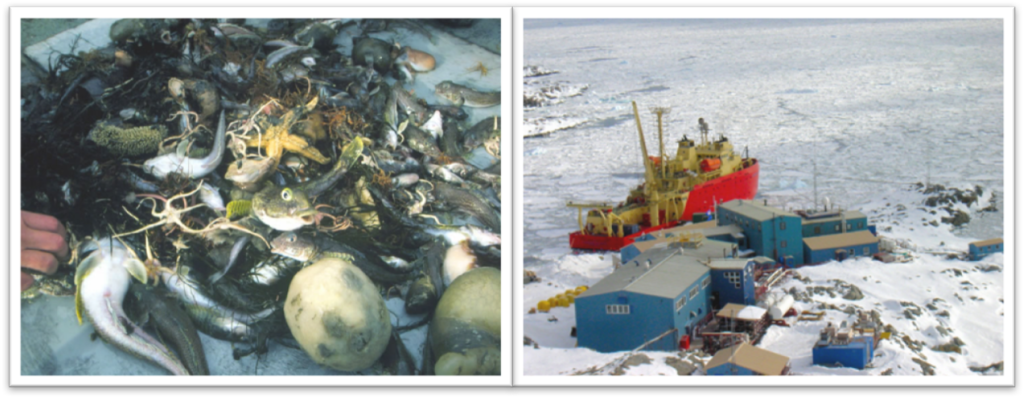When you imagine the Southern Ocean surrounding Antarctica, you probably think about ice and penguins. You may not realize that there are astounding species that thrive in these cold, stable, oxygen-rich waters. We are pleased to announce that Ocean Genome Legacy (OGL) recently acquired valuable samples from this southern sea!
The diverse samples—including sea spiders, sea stars, octopuses, and snails—came to OGL from Professor William Detrich and his team at Northeastern University, regular travelers to Antarctica. Professor Detrich literally wrote the book on “Frontiers in Polar Biology in the Genomic Era,” and among friends and colleagues is known as the “iceman” because of his work with Antarctic icefish. These fish, known as Notothenioids, have blood with antifreeze-like properties. Some even live without red blood cells, which no other vertebrate can do! And, if you have any doubts about Professor Detrich’s impact on polar research, there is even an island in Antarctica named after him.

Much of the work was completed by Dr. Jake Daane, who recently received a fellowship from the American Heart Association to study the genetic component of the icefish’s strange hemoglobin-free blood. “I am excited to work in an area that bridges the gap between basic questions in biology and evolution, with relevance to biomedicine and human health,” says Dr. Daane.
We are especially eager to receive these Antarctic samples because not only are polar regions full of incredible life, they are also among the areas most seriously affected by global warming. At OGL, we have used DNA based methods to better identify these specimens, some of which may still be unknown to science. These DNA samples are now available in the OGL online catalog, where they will help scientists like Professor Detrich and others better understand and preserve the Southern Ocean’s fragile diversity.
To help OGL safeguard the sea’s biodiversity, please consider making a gift.
